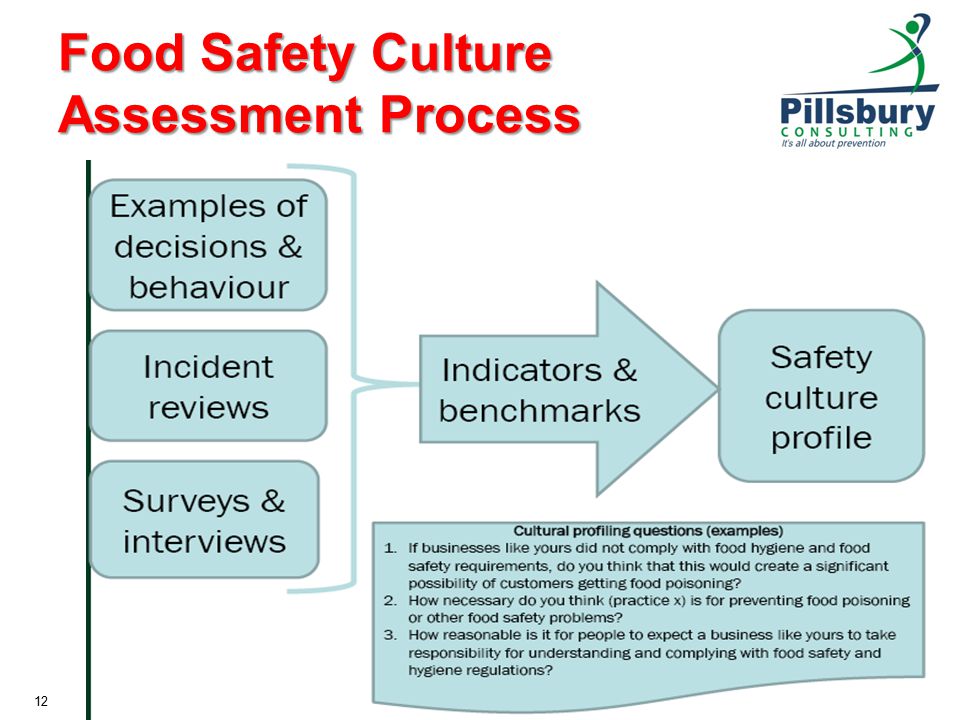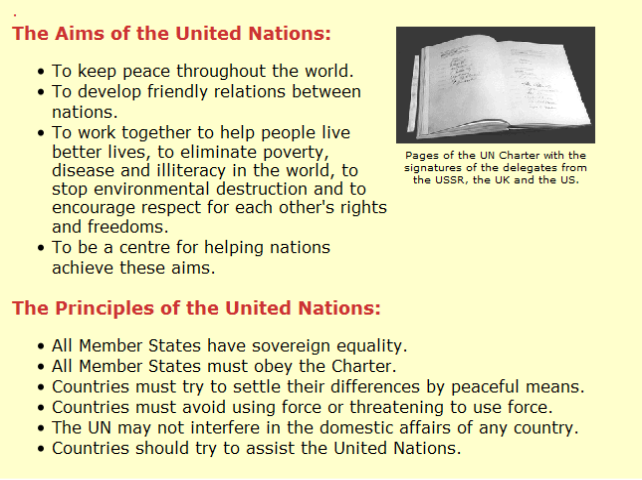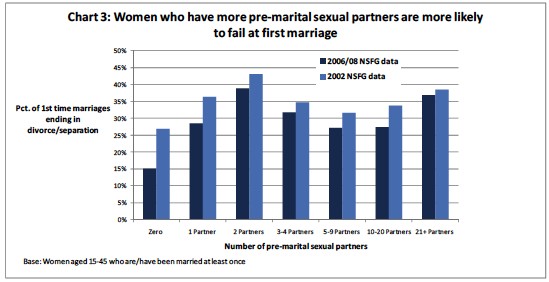Breaking up with family
Breaking Up With A Family Member
As the song goes, breaking up is hard to do. Especially when the person you're kicking to the curb isn't a love interest or pal, but a family member (more on breaking up with a friend here). Sure, we all have daydreams about finally telling off our overbearing mother-in-law or blocking an annoying aunt's phone number, but actually working up the nerve to do so? Not easy at all. "Growing up, we all hear 'blood is thicker than water,' and 'when all else fails, you'll always have your family,' which instills the message that family ties aren't supposed to be broken," says Jamye Waxman, MEd, author of How to Break Up With Anyone: Letting Go of Friends, Family, and Everyone In-Between. Added to that, she says, women tend to get put into the roles of martyr or savior, the one who is supposed to sacrifice and make peace, which makes it even more challenging to break up with a relative.
Still, sometimes saying good-bye is for the best. Stressful relationships, including those with relatives, can increase the risk of high blood pressure, weaken your immune system, cause headaches and stomachaches, lead to sleep problems, lower your self-esteem, and cause depression and anxiety. So ditching that toxic family member can be good for your health (if you need another excuse). Here's what to do when you're thinking about unraveling the ties that bind.
MORE: Are You Bummed Out...Or Depressed?
Take a deep breath.
Media Platforms Design Team
Generally, when a family relationship ends, it's on the heels of a huge blowup—a heated argument, one too many critical remarks, or a tiff over an unpaid loan. Before you write off a relative, cool down. Don't make impulsive, hasty decisions about family members you've had conflicts with because you may say or do something you'll regret, says Steven J. Hanley, PhD, a clinical psychologist in Southfield, MI. A better choice, he says, is to take a breather, let it all sink in, and then decide how you want to proceed.
A better choice, he says, is to take a breather, let it all sink in, and then decide how you want to proceed.
Evaluate the relationship.
Media Platforms Design Team
Take some time and really think about why you're considering ending it. Is the thing that pushed you to the limit something new? Or has the behavior been ongoing for a while? In addition to the downsides, are there any positives to the relationship? If so, do they outweigh the bad? Will ending the relationship with this person affect the ones you have with other family members?
Deciding if a relationship is worth keeping can be tough, but here are some signs that it's time to call it quits.
- There's abuse. Any physical, verbal, or emotional abuse is reason to terminate the relationship immediately. Don't worry about any possible fallout from others in the family. Your safety and well-being are what's most important.
 (Learn 5 signs you're in an abusive relationship.)
(Learn 5 signs you're in an abusive relationship.) - It's affecting other areas of your life. If the situation has you so stressed or angry that it's having a negative effect on other parts of your life, like your job performance or sleep habits, it may be time to walk away.
- Your interactions are mostly negative. All relationships have ups and downs, but,if your dealings are negative more often than not—your sister criticizes you, nitpicks, or starts an argument every time you're in each other's presence—it's time to check out. And the negativity doesn't have to be directed at you necessarily. It could be your mother calling with a daily laundry list of complaints about her life, which causes your own mood to plummet.
- The person makes you sick. If just the mention of the relative's name, or a text message, e-mail, or voicemail from the person puts a huge knot in your stomach, that's a clue the relationship has become unhealthy, says Mark Goulston, MD, a clinical psychiatrist and author of Talking to Crazy: How to Deal with the Irrational and Impossible People in Your Life.

- The relationship is one-sided. Healthy relationships are a balance of give and take. If your cousin only calls to borrow money or vent about her problems, but never reciprocates, she may be using you (or at the very least, not being a good friend).
- It's affecting your immediate family. Hanley says if maintaining the relationship is harmful to your spouse or children—for instance, your mom clearly favors one of your children while neglecting the others—you may need to take a step back for your family's sake.
- There's substance abuse or criminal behavior. Yes, family support is important when someone is battling addiction; however, that doesn't mean that you have to allow the substance abuse to have a negative impact on your own life. The same goes for any criminal behavior. Don't let a relative's misdeeds put you or your family at risk.
Know your role.
"Even though you may think the other person is the problem, it takes two to tango," Waxman says. Step back and look at some of your own actions. For instance, do you always assume your dad is going to say something negative, which causes you to go in on the defensive (and he in turn to do the same)? Or is it possible that your younger sister goes against everything you say because she feels you treat her like a child? Once you have clarity and see things you could do differently, you may realize it's possible to salvage the relationship.
Step back and look at some of your own actions. For instance, do you always assume your dad is going to say something negative, which causes you to go in on the defensive (and he in turn to do the same)? Or is it possible that your younger sister goes against everything you say because she feels you treat her like a child? Once you have clarity and see things you could do differently, you may realize it's possible to salvage the relationship.
Talk it out.
Media Platforms Design Team
If you think there's a chance to repair the connection, arrange to have a conversation (in person or by phone) with your relative. Discuss the biggest issues, take ownership of any part you played in the situation, and then discuss the future. For example, if you and your younger sister always butt heads after you give her advice, you could say, "We've been arguing a lot lately, and I've realized part of that is because I often tell you what to do, like I know what's best for you. However, I also get angry when you ask for advice and then get mad when I give it. I think if we could both be more conscious of those things, we would have a better relationship. What do you think?" Then, listen. Your sister may disagree, have her own ideas about what can help mend things, or may not want to bother at all. If the two of you do decide to go forward, set a deadline. "You don't necessarily have to tell the other person, 'I'm giving this 3 months,' but in your head, at least, you need to give yourself a certain amount of time to allow both of you to work on your parts," Waxman says. Then, if there's still no improvement, you can revisit how you're going to deal with the relationship.
However, I also get angry when you ask for advice and then get mad when I give it. I think if we could both be more conscious of those things, we would have a better relationship. What do you think?" Then, listen. Your sister may disagree, have her own ideas about what can help mend things, or may not want to bother at all. If the two of you do decide to go forward, set a deadline. "You don't necessarily have to tell the other person, 'I'm giving this 3 months,' but in your head, at least, you need to give yourself a certain amount of time to allow both of you to work on your parts," Waxman says. Then, if there's still no improvement, you can revisit how you're going to deal with the relationship.
MORE: 10 Little Things Connected Couples Do
Distance yourself.
You may realize that you're not quite at the point of being done completely, but you do want to enforce some distance. It's perfectly fine to keep interactions short, not accept calls at times (like when you're in a good mood and your mom is calling with another of her energy-sapping whinefests), agree to not discuss hot-button topics, or establish boundaries, like telling your father-in-law you won't tolerate his negative remarks about your weight.
Make the cut.
Sometimes, despite our best efforts, a relationship is unsalvageable or we don't want to repair it. Unless there's abuse (or you're ending things with a second cousin you only see once a year at the family reunion), you should have a conversation when giving someone the boot. Yes, it's easier to fade away, but that doesn't allow closure for either of you. Also, if you try the route where you keep saying you're busy until the person gets the hint, that can cause even more resentment to build because you may feel as though you're being forced to lie, Goulston says.
Fortunately, the "it's over" conversation doesn't have to be long or dramatic. It can be a 5-minute conversation in which you say, "I've realized our actions together have not been healthy. I don't want to do this anymore," says Waxman. Answer any questions but don't get reeled back in. If the person gets overly accusatory or starts acting crazy, don't let the situation escalate. Goulston advises saying, "Why don't we stop the conversation here?" Then end it.
Goulston advises saying, "Why don't we stop the conversation here?" Then end it.
MORE: 7 Reasons You're Tired All The Time
Deal with the family.
Media Platforms Design Team
Unfortunately, cutting off one relative doesn't only affect that person. "When you make the decision to sever ties, there's oftentimes some collateral damage," Hanley says. Some family members will try to make you feel guilty; others may accuse you of breaking up the family; and some relationships might even dissolve. Shut down any guilt-tripping or accusatory conversations. Waxman suggests saying something like, "I'm sorry you feel I'm ruining the family. I love this family! I'm doing what I think is best to take care of myself." Setting those boundaries will be difficult at first, but stick to your guns and remind yourself that you're doing this for your self-care.
Keep it cordial.
As much as you'd like to be done with the relative completely, you're likely to run into each other at future family gatherings. To avoid sticky situations, let your family members know it's OK to invite both of you to events. It's not fair to make them choose. If you don't think you can handle being in the other person's presence, it should be you who doesn't attend since you were the one to do the breaking up, says Waxman. When you do see each other, be cordial. You don't have to get into a full-fledged conversation; simply greet him or her and then move on, Waxman says. Breaking the ice but keeping contact to a minimum will make the event less awkward for everyone, she explains. (It also makes it easier to reconnect with that family member later if you want to.)
Another time to take the high road is when you face questions about what happened. Yes, people will be curious, but it's better to keep the details between the person you cut off and yourself. Don't talk about how "wrong" the other person did you; don't gossip about her, share secrets she once told you, or try to get others to "be on your side." Your goal is peace, not to ignite a family feud.
Don't talk about how "wrong" the other person did you; don't gossip about her, share secrets she once told you, or try to get others to "be on your side." Your goal is peace, not to ignite a family feud.
Have a good support system.
Breaking up with a family member can be freeing, but it also causes a lot of emotional upheaval. It's normal to feel anger, guilt, resentment, and loneliness. "You're sort of mourning the loss of someone that, presumably, you loved or felt loved by, or wanted to feel loved by, which can be very tough," Hanley says. Look for sources of support. Talk to your spouse or a trusted friend (not family members, to keep down drama) about what you're feeling, or join a support group. If you're having difficulty working through the harm the relationship caused or coping with the dissolution of the relationship, Hanley recommends seeking professional help.
Tamekia Reece
Tamekia Reece is a freelance writer in Houston, Texas specializing in women's health, parenting and finances.
What to do when it's time to break up with a family member – Chicago Tribune
As the song goes, breaking up is hard to do. Especially when the person you're kicking to the curb isn't a love interest or pal, but a family member. Sure, we all have daydreams about finally telling off our overbearing mother-in-law or blocking an annoying aunt's phone number, but actually working up the nerve to do so? Not easy at all.
"Growing up, we all hear 'blood is thicker than water,' and 'when all else fails, you'll always have your family,' which instills the message that family ties aren't supposed to be broken," says Jamye Waxman, author of "How to Break Up With Anyone: Letting Go of Friends, Family, and Everyone In-Between." Add to that, she says, women tend to get put into roles of martyr and savior, the one who is supposed to sacrifice and make peace, which makes it even more challenging to break up with a relative.
Advertisement
Still, sometimes saying goodbye is for the best. Stressful relationships, including those with relatives, can increase the risk of high blood pressure, weaken your immune system, cause headaches and stomachaches, lead to sleep problems, lower self-esteem, and cause depression and anxiety. So ditching that toxic family member can be good for your health (if you need another excuse). Here's what to do when you're thinking about unraveling the ties that bind.
Stressful relationships, including those with relatives, can increase the risk of high blood pressure, weaken your immune system, cause headaches and stomachaches, lead to sleep problems, lower self-esteem, and cause depression and anxiety. So ditching that toxic family member can be good for your health (if you need another excuse). Here's what to do when you're thinking about unraveling the ties that bind.
Generally, when a family relationship ends, it's on the heels of a huge blow up — a heated argument, one too many critical remarks, or a tiff over an unpaid loan. Before you write off a relative, cool down. Don't make impulsive, hasty decisions about family members you've had conflicts with because you may say or do something you'll regret, says Steven J. Hanley, a clinical psychologist in Southfield, Mich. A better choice, he says, is to take a breather, let it all sink in, and then decide how you want to proceed.
Advertisement
Take some time and really think about why you're considering ending it. Is whatever that has pushed you to the limit something new? Or has the behavior been ongoing for a while? In addition to the downsides, are there any positives to the relationship? If so, do they outweigh the bad? Will ending the relationship with this person affect the ones you have with other family members?
Is whatever that has pushed you to the limit something new? Or has the behavior been ongoing for a while? In addition to the downsides, are there any positives to the relationship? If so, do they outweigh the bad? Will ending the relationship with this person affect the ones you have with other family members?
Deciding if a relationship is worth keeping or not can be tough, but here are some signs that it's time to call it quits.
There's abuse. Any physical, verbal or emotional abuse is reason to terminate the relationship immediately. Don't worry about any possible fallout from others in the family. Your safety and well-being are what's most important.
It's affecting other areas of your life. If the situation has you so stressed or angry that it's having a negative effect on other parts of your life, like your job performance or sleep habits, it may be time to walk away.
Your interactions are mostly negative. All relationships have ups and downs, but, if your dealings are negative more often than not — your sister criticizes you, nitpicks, or starts an argument every time you're in each other's presence — it's time to check out.
The relationship is one-sided. Healthy relationships are a balance of give and take. If your cousin calls only to borrow money or vent about her problems, but never reciprocates, she may be using you (or at the very least, not being a good friend).
It's affecting your immediate family. Hanley says if maintaining the relationship is harmful to your spouse or children — for instance, your mom clearly favors one of your children while neglecting the others — you may need to take a step back for your family's sake.
There's substance abuse or criminal behavior. Yes, family support is important when someone is battling addiction; however, that doesn't mean that you have to allow the substance abuse to have a negative impact on your own life. The same goes for any criminal behavior. Don't let a relative's misdeeds put you or your family at risk.
Advertisement
"Even though you may think the other person is the problem, it takes two to tango," Waxman says. Step back and look at some of your own actions too. For instance, do you always assume your dad is going to say something negative, which causes you to go in on the defensive (and he in turn to do the same)? Or is it possible that your younger sister goes against everything you say because she feels you treat her like a child? Once you have clarity and see things you could possibly do differently, you may realize it's possible to salvage the relationship.
For instance, do you always assume your dad is going to say something negative, which causes you to go in on the defensive (and he in turn to do the same)? Or is it possible that your younger sister goes against everything you say because she feels you treat her like a child? Once you have clarity and see things you could possibly do differently, you may realize it's possible to salvage the relationship.
Sometimes, despite our best efforts, a relationship is unsalvageable or we don't want to repair it. Unless there's abuse (or you're ending things with a second cousin you only see once a year at the family reunion), you should have a conversation when giving someone the boot. Yes, it's easier to fade away but that doesn't allow closure for either of you. Also, if you try the route where you keep saying you're busy until the person gets the hint, that can cause even more resentment to build because you may feel as though you're being forced to lie, says Mark Goulston, a clinical psychiatrist and author of "Talking to Crazy: How to Deal with the Irrational and Impossible People in Your Life. "
"
Fortunately, the "it's over" conversation doesn't have to be long or dramatic. It can be a 5-minute conversation in which you say, "I've realized our actions together have not been healthy. I don't want to do this anymore," says Waxman. Answer any questions but don't get reeled back in. If the person gets overly accusatory or starts acting crazy, don't let the situation escalate. Goulston advises saying, "Why don't we stop the conversation here." Then end it.
Breaking up with a family member can be freeing, but it also causes a lot of emotional upheaval. It's normal to feel anger, guilt, resentment, and loneliness. "You're sort of mourning the loss of someone that, presumably, you loved or felt loved by, or wanted to feel loved by, which can be very tough," Hanley says. Look for sources of support. Talk to your spouse or a trusted friend (not family members, to keep down drama) about what you're feeling, or join a support group. If you're having difficulty working through the harm the relationship caused or coping with the dissolution of the relationship, Hanley recommends seeking professional help.
Breaking up with loved ones: misconceptions, causes and possible benefits
- Christine Roe
- BBC Future
Image copyright BBC/Getty
Being a stranger to your family happens more often than you might think. For society, such relationships are often like a stigma. However, according to psychologists, sometimes life away from your loved ones is much healthier, and sometimes it's the only way out.
Nanditi Godbole had a breakup with the rest of her wealthy Indian family over... food.
Godbole writes books about how to cook, but her relatives, who are used to hiring a cook to cook, consider her passion unworthy. And when her last book came out, in which Godbole delved into the history of her family, the discord became even more pronounced.
Relatives felt that by telling about what outsiders should not know, Godbole went against the traditional family hierarchy. Some even stopped talking to her.
Some even stopped talking to her.
This story is, of course, unique in its own way, but what Nanditi Godbole experienced because of the break in relations with her family is not at all uncommon.
Family alienation can be described as alienation and loss of attachment that deepens over the years (or even decades) within the same family.
At the same time, it is not always possible to understand in which direction the situation is developing - in the direction of deterioration or improvement. For scientists, this is a relatively new area of research.
But this phenomenon is very common. For example, the British charity Stand Alone, which provides support to those people who suffer from a broken relationship with loved ones, believes that this happens in one out of every five families in the United Kingdom.
Image copyright, BBC/Getty
Image caption,Disagreements with loved ones are discussed more than in previous years
Skip the Podcast and continue reading.
Podcast
What was that?
We quickly, simply and clearly explain what happened, why it's important and what's next.
episodes
The End of the Story Podcast
An American study found that out of more than 2,000 mother-child couples, 10% of mothers are in a situation of alienation with their adult daughter or son.
Another study (also in the US) found that more than 40% of participants experienced alienation within their families at some point in their lives. Moreover, in certain social groups, this is almost as common as divorce.
Stand Alone founder Becca Bland (who has her own experience of living at odds with loved ones, she does not communicate with her parents) notes that this topic is now being discussed much more widely than before - even five years ago.
This is also confirmed by Google Trends query statistics: people are increasingly entering words in the search box that describe the situation of alienation - this happens primarily among users in Canada, Australia and Singapore.
Bland believes that Meghan Markle helped this to a large extent when she entered the British royal family.
Prince Harry's wife, the Duchess of Sussex, who won first place in search queries in the British Google (and second in the US) in 2018, spurred public interest in intra-family conflict situations due to her difficult relationship with her father.
- How breaking up a relationship will affect your personality
- How life in marriage changes your personality the same interest was received by the recognition in an interview in 2018 of the famous actor Anthony Hopkins, in which he said that for 20 years he had hardly spoken to his daughter.
Such celebrity details tend to help ordinary people digest their own difficult life experiences and try to explain them to themselves.
Although examples of alienation can be found in any country in the world, it is more common in a certain type of society or state.

One of the determining factors is how much support the government provides to citizens. In countries with a developed welfare system, people simply do not need strong family ties and the help of relatives to such an extent. And so they have a choice - whether to maintain a relationship with one or another family member.
For example, in Europe, the farther to the south, the more parents and adult children tend to have close relationships, since in the countries of southern Europe state assistance is scarcer.
Image copyright, BBC/Getty
Image caption,The out-of-family phenomenon is more common in countries with well-developed welfare systems
Financial factors intersect with others, such as race or education. For example, in Germany, the higher level of education of older children often goes hand in hand with a higher level of conflict with parents.
It is assumed that well-educated family members tend to be more geographically mobile and need each other less financially.

A study by Megan Gilligan and her colleagues on conflicts in American families over family care showed differences in the experience of adult children depending on race.
However, isolating the influence of culture or class can be difficult. Gilligan, a gerontologist at Iowa State University, notes that in the US, ethnic minorities tend to rely more on the support of family members.
In Uganda, where in recent times it was important to stick to each other, to keep in touch with one another, to survive, family alienation is rearing its head, says Steven Wandera, a demographer at Makerere University in Kampala.
A recent study by Wandera and colleagues found that 9% of Ugandans aged 50 and over live alone. For this African country - a surprisingly high figure.
Of course, this is not exactly the same as alienation. But as families become smaller, more nuclear, and urbanization increases, the percentage of Ugandans living in constant conflict with relatives will rise, Wandera says.

This will not happen quickly. "Cultural norms are still strong and it will take time until they weaken," he stresses. But, in his opinion, in 20 years everything will change.
Image copyright BBC/Getty
Image captionAs families become smaller and more urbanized, alienation will become more common
This does not mean, of course, that governments should reduce financial assistance for the elderly people to force families to maintain strong ties.
Let's say that Spanish family culture has always been considered more "compulsory" than, for example, Norwegian, where intergenerational relations are usually more friendly because they are chosen voluntarily, and not for financial reasons.
Why this happens
The reason for the loss of intra-family ties is often the divorce of parents - and in such cases, the relationship with the father suffers especially.
A common reason is also a broken relationship with a relative belonging to a marginalized minority (sexual, religious, etc.
 ).
). But quite often such a break occurs calmly and without much drama. As Gilligan explains, it usually happens gradually, rather than due to any one major event.
The people she interviewed often said, "I can't say exactly how it happened."
Image copyright, BBC/Getty
Image caption,Often, the breakup between close relatives is gradual and reflects long-standing tension in a relationship.
Those families whose members would like to restore relations, reconcile, should be aware that their conflict is unlikely to be the result of an isolated incident. They will have to study their own past more closely.
For those who want to reconcile or prevent alienation, we can recommend: do not rush to condemn the other.
Gilligan's study of mothers, 10% of whom lived without contact with their adult children, showed that the most important factor in their alienation from each other was a mismatch of values.

For example, "if a mother valued her religious beliefs and practices, and the child openly disregarded them, the mother found it really offensive," says Gilligan.
Of course, this is not only about religion. Another mother, who highly valued truthfulness, broke off relations with her deceitful son. Another woman who placed great importance on her own independence stopped talking to her daughter, who seemed to her mother to be too dependent on a man.
Image copyright, BBC/Getty
Image caption,Growing up children often recall emotional tyranny in the home, but their parents rarely talk about it norms - say, if a child committed a crime.
Moreover, according to the study, common values were more important for mothers than for fathers. Mothers just couldn't get over it.
Well, as often happens, the parties (parents and children) gave completely different interpretations of the same situation.

In the UK, adult children, for example, most often mentioned emotional hurts that led to a break with their parents - about constant attempts to control through humiliation, criticism, etc.
But parents were much more likely to talk about things like divorce or mismatched expectations.
"An adult child and his mother usually don't talk to each other about what makes them sad, so I think they are on different pages of understanding the same situation," she says.
Well, naturally, if one of them takes a defensive position and does not want to listen to the other, then these two people are not able to explain something to each other.
Bland this seems to be the result of generations having completely different conceptions of family life.
Image copyright, BBC/Getty
Image caption,Different generations have different ideas about what a family should be like
According to her, in post-war Britain there was a very conservative idea of what a family should be like.
 People used to think of family life in terms of duty and self-sacrifice, which sometimes led them to put up with emotional and even physical abuse.
People used to think of family life in terms of duty and self-sacrifice, which sometimes led them to put up with emotional and even physical abuse. For children of that generation, the mismatch of values or expectations also plays a role. And another important factor is parental favoritism.
Positive aspects of alienation
But everything is not so simple. Just as traditional taboos regarding divorce have kept women in violent and exploitative marriages, so a dogmatic belief in the permanence and sacredness of the family can mean unnecessarily suffering for someone.
As Gilligan points out, "If relations between relatives are full of conflict, if they cause such suffering, then perhaps the best way out for both parents and their grown children is to break off these relations."
And people understand this. According to Stand Alone, for more than 80% of people who choose to break up with loved ones, this is associated with at least a few positive things - such as freedom and independence.
 It's a way to overcome the past.
It's a way to overcome the past. It is also important to note that a breakup is not necessarily permanent. People can restore relationships, get closer again.
Yes, and conflicts do not always arise immediately with all other family members.
For example, in Vietnamese families, despite the fact that LGBT or transgender affiliation is unacceptable for parents, brothers and sisters are much more tolerant of this.
Alienation in the family is also painful because it is not clear how long it will last and whether it will end at all.
Photo credit, BBC/Getty
Photo caption,For more than 80% of respondents, the breakup of a relationship was associated with newfound freedom and independence in the eyes of society," Gilligan said.
For example, in an article in an online publication for pensioners, the author blames alienation on individualism, divorce, psychotherapy, and the "immaturity of children.
 "
" And even psychotherapists often blame their patients for not communicating with one of their close relatives. Women are especially easily ostracized for this. Some people even have to minimize their social contacts, just to keep others from their family problems.
But, as experts emphasize, people who are already isolated from their families should not be driven into a corner, aggravating the situation.
Another aspect: from the point of view of scientists, such ostracism makes it difficult to understand how many people are actually alienated from their families.
This is especially difficult to find out in those countries and cultures where it is considered unacceptable to discuss family conflicts.
The author of books about tasty and healthy food, Nanditi Godbole, knows all this very well. "I've come to terms with the fact that people will take time to reconnect with me. And some may never do it," she says.
 "I'm fine with that."
"I'm fine with that." So even if alienation is difficult to overcome, there is no reason to be ashamed of it - like many other painful situations in life.
---
Read the original English version of this article at BBC Future .
Break off relations with your parents
66 822
Know yourself
Relationships with parents sometimes cause pain and suffering, but rarely does anyone decide to cut off all ties with their mother and / or father. There are even fewer of those who can not be tormented by this feeling of guilt. Nevertheless, sometimes a breakup becomes the only way out for a son or daughter. This happens when a relationship becomes too traumatic.
“My parents put a lot of effort into me, but not a single soul. I never felt loved. There were not the slightest human manifestations: they never caressed me, they didn’t say a tender word, we didn’t have intimate conversations, I didn’t receive gifts from them, says 40-year-old Mikhail.
 “They were only interested in my achievements, and they were completely deaf to my feelings and thoughts. My father was constantly absent, and my mother unceremoniously interfered in all my affairs.
“They were only interested in my achievements, and they were completely deaf to my feelings and thoughts. My father was constantly absent, and my mother unceremoniously interfered in all my affairs. One evening, shortly after graduation, he rebelled, made a scandal and almost blew the whole house to pieces. “I could neither kill them nor kill myself. My rebellion made no sense. And I realized that there was only one thing left for me - to destroy all ties between us, ”he explains more than twenty years later. He was the only child in the family, he was never beaten, but living in an emotional vacuum was unbearable for him.
Sometimes a breakup is necessary, it brings liberation
Adults can break off relations with their parents for various reasons, in each case they are different, but they all have something in common: a complete breakup is perceived as the only way to protect oneself from life-toxic relationships.
 Not necessarily the reason lies in physical or psychological abuse, it may simply be the inability to maintain a relationship that suffocates or absorbs a person.
Not necessarily the reason lies in physical or psychological abuse, it may simply be the inability to maintain a relationship that suffocates or absorbs a person. “Sometimes a breakup is necessary, it brings liberation,” confirms psychotherapist Nicole Prieur in “We betrayed ourselves so many times. Love, family and betrayal. This happens if the relationship, whether it was calm or conflict, prevented the children from growing up and forming their own personality, if the children felt depressed, abandoned, mistreated, or turned into hostages of parental desires.
When and how does the breakup occur?
Sometimes only one of the children decides to break up, because he got more suffering. Irina, now 44, dutifully endured her mother's "icy sadism" in childhood and adolescence, while her two brothers were "indescribably spoiled." But when she saw a grimace of disgust on the face of her mother, bending over her granddaughter's cradle, Irina decided to burn all the bridges.

Typically, a breakup is associated with symbolic transitional moments in life: the end of adolescence, the creation of a family of one's own, or the appearance of the first child. These are the three turning points where separation from parents is easier. The occasion always seems insignificant: a word, a gesture, an act that overflows the cup of suffering.
Gérard Poussin, psychologist and psychiatrist, notes in Rompre ces liens qui nous étouffent, How to break the ties that suffocate us, that in most cases the break is abrupt, sometimes calm, sometimes screaming, but rarely accompanied by explanations : "Otherwise, this step would be too hard to take."
Besides, it is never done thoughtlessly. “Usually people decide to break up after years of trying to stay in touch no matter what. Relationships are not broken with joy, ”the psychologist emphasizes. And the breakup brings not only a sense of liberation: usually a person is overwhelmed with anxious feelings, in which suffering, relief and guilt are mixed.

“Even if he is sure of the correctness of his decision and claims that there is no guilt behind him, this feeling is still present: deep down he feels guilty that he was not loved the way he wanted,” believes psychoanalyst Virginie Meggle, in "Cutting the Umbilical Cord, Curing Our Emotional Addictions."
Work on oneself
“A break is sometimes necessary, but it does not solve the problem by itself,” says Gerard Poussin. “It can prolong suffering or even create new problems with loved ones.” In order for the separation to bear fruit, you need to be able to “break with yourself, and not with your parents,” continues Virginie Meggle, “anger and hatred keep in touch and, against our will, strengthen infantile relationships.”
To express actions and emotions in words, to analyze the reasons that led to the break - this is a necessary work on oneself in such a situation. It is important to try to understand the father or mother (which does not mean in this case to forgive them) and try to make a list of the good things they gave us, even in negligible doses - such work helps to grow up and get rid of emotional dependence.

It is better to cut the symbolic umbilical cord than to burn all the bridges
“The child who rejects everything that he received from his parents is bad, and not the one who does not love them,” says Nicole Prieur. “Therefore, you need to acknowledge the existence of your suffering, give it the opportunity to manifest itself. It can be just one phrase, something like: “Yes, this is the life I live!”
Unconditional reconciliation
After many years of silence, a person may feel the need to renew the relationship, for example in connection with an important family event. Reconciliation can occur during a serious illness of one of the parents, when there is a feeling that, having weakened, he no longer threatens his child.
But, according to Nicole Prieur, reconciliation before death will be possible only on the condition that you do not dream of finding an ideal parent. After all, even after twenty years, having lost its strength, it can remain tough and intolerant.
 And in order not to be again in the position of a child and protect yourself from a traumatic relationship, it is better to work on yourself first.
And in order not to be again in the position of a child and protect yourself from a traumatic relationship, it is better to work on yourself first. Mikhail believes that psychotherapy helped him develop the right distance in relation to his parents: “When I analyzed their past, I was finally able to understand them, and most importantly, I realized that I could not change them. My father died last year, my mother calls me twice a year. I talk to her quite calmly, because now we both know that she will no longer be able to interfere in my life.
Stop idealizing the relationship - accepting the parent for who they are and establishing the necessary distance - this is the only way to maintain self-respect and make yourself respected without hurting yourself. It is better to cut the symbolic umbilical cord than to burn all the bridges.
Text: Alina Nikolskaya Photo credit: Getty Images
New on the site
How nature can help you with stress: advice from an ecotherapist
“In my 23 years of life, I have had only one relationship: what am I doing wrong?”
12 conditions necessary for an introvert to be happy
Saw a husband with a mistress and went blind: hysteroid personality disorder
Instructions for abandoned people: how to stop crying and start living
“I am married, but I still have a desire to communicate with other girls .















